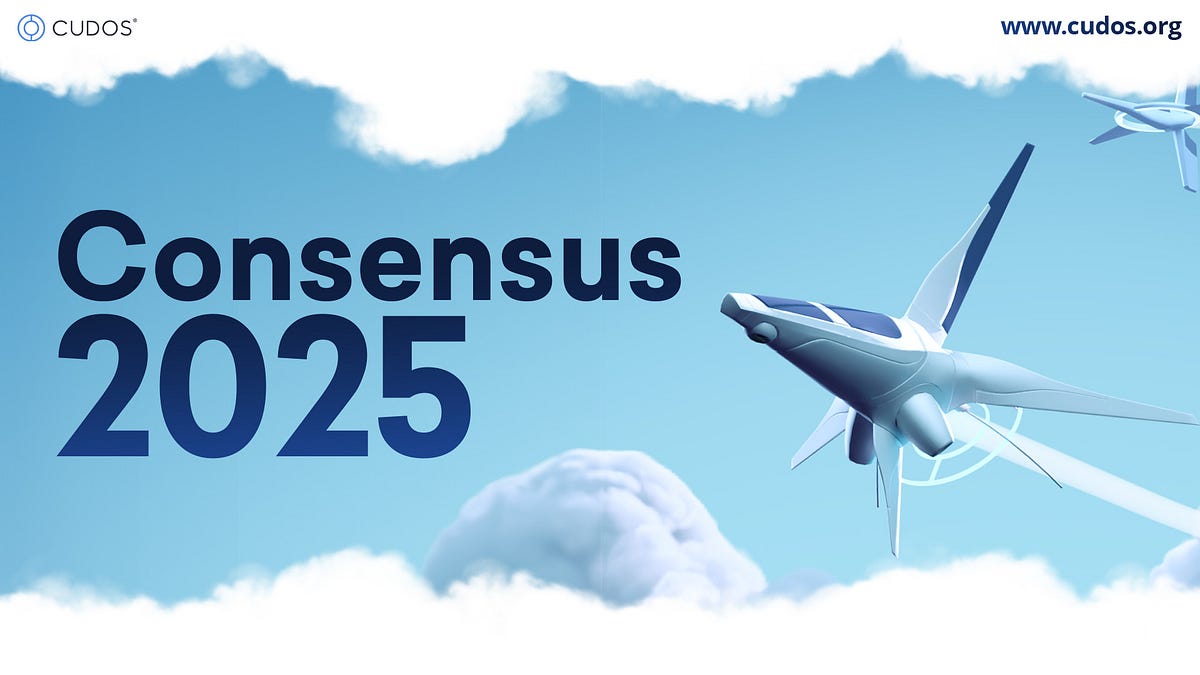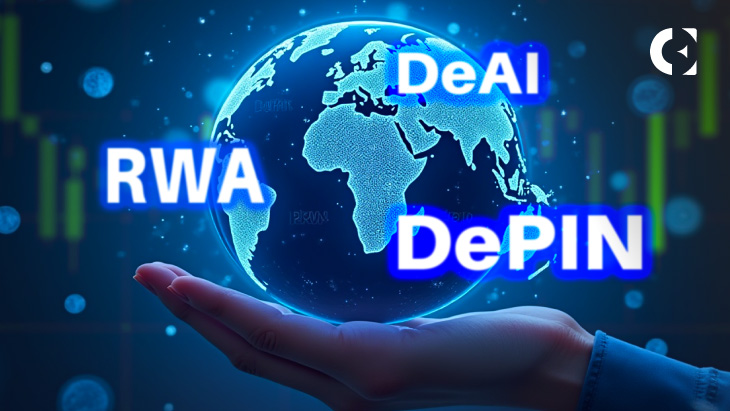Ankr Integrates with TON Blockchain to Simplify DApp Development
Thursday, October 24, 2024 12:00 AM
143
Web3基础设施平台Ankr最近宣布与开放网络(TON)区块链的集成,这一举措将为开发者提供更便捷的去中心化应用(DApps)开发体验,特别是针对Telegram用户。根据10月24日的公告,这一集成将消除TON的节点设置,节省开发者在构建、校准和修复问题上所需的时间。Telegram的用户群体估计达到9.5亿,基于TON的热门DApps包括Telegram Mini Apps,例如Hamster Kombat,这款tap-to-earn游戏在短短几个月内吸引了超过3亿玩家。
通过此次集成,Ankr将提供远程过程调用(RPC)连接,使开发者能够直接与TON网络进行交互,执行交易、获取钱包余额和检索所有权信息等任务。TON的RPC端点将通过Asphere部署,成为一个全球范围内低延迟的区块链节点的地理分布网络。Ankr的联合创始人兼首席执行官Chandler Song表示:“由于这款消息应用在我们的行业中至关重要,我们非常期待看到创新的新功能随着构建障碍的消除而实现。”
TON区块链还提供了自己的RPC服务,允许开发者直接与网络互动以构建Telegram上的DApps。然而,Ankr表示,其与TON网络的集成消除了节点管理的复杂性。此外,TON基金会最近选择了Axelar的Mobius Development Stack(MDS)来连接其生态系统与68个网络,允许开发者跨多个区块链构建DApps,消除了通过互操作性层的桥接解决方案的需求。值得一提的是,TON区块链在9月份获得了来自加密交易所Bitget和Foresight Ventures的3000万美元战略投资,旨在加速TON基础应用的开发,尤其是像Hamster Kombat和Notcoin这样的游戏。
Related News

3 days ago
IPFS Revolutionizes Data Transmission in Space with Filecoin and Lockheed MartinThe Interplanetary File System (IPFS) has made significant strides in reducing latency for data transmissions in space, as demonstrated by a successful collaboration between the Filecoin Foundation and Lockheed Martin Space. During the Consensus 2025 conference in Toronto, Marta Belcher, president of the Filecoin Foundation, revealed that they have successfully transmitted data using a version of IPFS on a satellite orbiting Earth. This adaptation enhances privacy and security by identifying data based on its content rather than its location, which is particularly beneficial for space communications. The architecture of IPFS is designed to mitigate delays, address data corruption from radiation, and enable cryptographic verification to ensure data integrity.
Belcher highlighted the challenges of data transmission from celestial bodies, noting the multi-second delay from the Moon and multi-minute delay from Mars. The IPFS system allows users to retrieve data based on a content ID from the nearest source, whether it be a personal device, a nearby satellite, or a lunar station. This decentralized approach reduces reliance on centralized data centers and improves the reliability of data storage in environments where hardware may degrade, which is crucial for maintaining the integrity of sensitive materials like satellite images.
The growing interest in decentralized archival storage among media companies and potential military applications of this technology indicate a promising future for IPFS. Belcher emphasized the power of having a deep archive accessible globally, which could revolutionize how media and military organizations manage their data. Additionally, the FIL token, a utility token within the Filecoin ecosystem, boasts a market capitalization of approximately $1.8 billion, reflecting the increasing relevance of decentralized storage solutions in today's digital landscape.

3 days ago
CUDOS at Consensus 2025: Pioneering Decentralized Compute SolutionsThe recent Consensus 2025 event highlighted a pivotal shift in the blockchain landscape, emphasizing that decentralized infrastructure has become a necessity rather than an emerging trend. CUDOS took center stage, engaging with Web3 developers and AI infrastructure teams, showcasing their commitment to providing scalable, permissionless, and privacy-preserving compute solutions. The focus was clear: to eliminate gatekeepers and opaque pricing structures that often accompany centralized platforms, thereby promoting a truly decentralized computing environment through the CUDOS Intercloud initiative.
Throughout the event, various themes emerged, particularly around policy and regulation, which are expected to shape the future of blockchain innovation. Keynotes emphasized the growing importance of programmable stablecoins designed to operate outside traditional financial systems, highlighting the increasing demand for reliable infrastructure. The Hackathon Hall buzzed with activity as AI builders and decentralized physical infrastructure (DePIN) projects explored innovative solutions for decentralized inference, mining, and data services. Participants were not only focused on current developments but also on the future of Web3 and the role of AI in driving the next wave of innovation.
CUDOS stands out in this evolving landscape by offering digital wallet-authenticated access to high-performance GPU nodes without the need for accounts or KYC processes. Their cross-chain compatibility makes them a suitable choice for AI, DePIN, and Web3-native applications. As the demand for decentralized compute solutions grows, CUDOS Intercloud is positioned to support projects that require scalable infrastructure without the constraints of centralized control. The message from Consensus 2025 is clear: decentralized compute is essential for the future of AI, blockchain, and digital sovereignty, and CUDOS is at the forefront of this transformation.

4 days ago
Amp and Aethir Shine Amidst Crypto Market CoolingIn a cooling crypto market, Amp (AMP) and Aethir (ATH) have emerged as standout performers, each experiencing a notable 16% increase in value. Amp is currently valued at $0.0051, buoyed by strong bullish momentum supported by key Exponential Moving Averages (EMAs) and favorable trading signals from indicators like MACD and RSI, despite warnings of overbought conditions. Meanwhile, Aethir, which focuses on AI-driven blockchain solutions, has surged to $0.052, breaking past significant resistance levels and maintaining bullish optimism, although the overbought RSI suggests that traders should remain vigilant.
The divergence in the crypto market is evident as Helium (HNT) faces downward pressure, trading at $4.00 and struggling below the critical 200-day EMA. This situation poses a risk of further declines if it breaches the 100-day EMA support at $3.83. The contrasting trajectories of Amp and Aethir against Helium highlight the persistent volatility and innovation within the digital asset market, prompting traders to balance ambition with risk management strategies.
As traders navigate these turbulent waters, the resilience of Amp and Aethir underscores the potential for growth even amid market stagnation. Investors are encouraged to monitor key technical indicators closely, particularly EMAs and RSI levels, to identify optimal entry points and manage risks effectively. The ongoing developments in these projects reflect the dynamic nature of the cryptocurrency landscape, where innovation continues to drive interest and investment opportunities.

4 days ago
Helium: Revolutionizing Telecom with Decentralized NetworksHelium is making waves in the telecom industry by leveraging cryptocurrency to build what could be the most disruptive network in America. Originally starting as an Internet of Things (IoT) initiative, Helium has transformed into the world’s largest decentralized wireless network. With the support of the Decentralized Physical Infrastructure Network (DePIN) movement, Helium is redefining how infrastructure is constructed. Abhay Kumar, Helium's Protocol Lead, emphasized the company's mission: to create wireless infrastructure that fosters innovative business models. This evolution has allowed Helium to expand its services to include both IoT and 5G mobile networks, solidifying its position in the DePIN landscape.
The transition from connecting devices to connecting people has been pivotal for Helium. The launch of Helium Mobile, a new carrier, exemplifies this shift. In the U.S., users can access a free cell phone plan or opt for a limited plan at just $15 per month. Kumar attributes this affordability to Helium's unique protocol, which significantly reduces bandwidth costs for carriers. By utilizing the Helium network, carriers pay only 50 cents per gigabyte, a stark contrast to traditional pricing models. This cost efficiency is largely due to the DePIN model, which incentivizes individuals and businesses to install wireless nodes, such as 5G radios, in exchange for cryptocurrency rewards.
Helium's decentralized infrastructure approach has emerged as a leading example of the potential of DePIN. Kumar noted the company's fortunate timing in establishing this model before it became widely recognized. By allowing local shop owners to contribute to the network, Helium not only enhances customer satisfaction but also enables carriers to extend their reach. The collaborative nature of this model benefits all parties involved, showcasing how decentralized networks can revolutionize the telecom sector and create sustainable business practices.

4 days ago
Crypto Market Resurgence: Theta, Gala, and PayFi Lead the ChargeThe crypto market is experiencing a resurgence, with notable gains in tokens like Theta, Gala, and Sandbox, which have reignited interest in the metaverse and GameFi sectors. Theta Network has seen a remarkable 37% price increase, buoyed by a partnership with Nanyang Technological University to develop EdgeCloud AI infrastructure. This collaboration aims to enhance decentralized video streaming and NFT platforms, positioning Theta as a leader in AI-powered Web3 services. Despite a slight price correction, the overall trend remains bullish, reflecting growing investor confidence.
Gala Games is also riding a wave of optimism, with its token GALA surging nearly 47% following a high-profile partnership with the White House to create a Web3-based Easter Egg Hunt game set for 2025. This unexpected collaboration has not only boosted GALA's price but also sparked interest in the GameFi sector, leading to a broader uplift in the crypto market. The sustained gains and high buying interest indicate a strong recovery and renewed enthusiasm among investors, showcasing Gala's potential for mainstream adoption.
Amidst these developments, PayFi is emerging as a transformative force in the crypto landscape. Platforms like Remittix are redefining cross-border payments by enabling instant crypto-to-fiat transfers without requiring users to have extensive crypto knowledge. With support for over 50 crypto pairs and a user-friendly interface, PayFi is poised to revolutionize real-world finance. As the crypto market continues to evolve, the focus on practical innovations like PayFi suggests that 2025 could mark a significant shift toward mainstream adoption of blockchain technology in everyday financial transactions.

4 days ago
Exploring the Growth of RWAs, DePINs, and DeAI in 2025In May 2025, the tokenization of real-world assets (RWAs) has surged, reaching a valuation of $22.5 billion, with projections suggesting it could hit $50 billion by the end of the year. This growth is largely attributed to the increasing integration of decentralized finance (DeFi) with traditional financial assets, such as real estate and government bonds. Notably, institutional investors like BlackRock and Goldman Sachs are playing a pivotal role in this expansion. The U.S. Securities and Exchange Commission (SEC) has also shown a commitment to this sector by hosting a tokenization roundtable, signaling a positive regulatory environment for RWAs. Analysts predict that the RWA market could grow to a staggering $10 trillion by 2030, highlighting its potential to dominate the crypto landscape in the coming years.
Alongside RWAs, the Decentralized Physical Infrastructure Networks (DePIN) market is projected to reach $3.5 trillion by 2028. DePIN aims to revolutionize physical infrastructure by utilizing blockchain technology to create decentralized networks for computing, storage, and connectivity. This innovative approach could disrupt various industries, including telecommunications and IoT. Leading projects such as Theta Network and Akash Network are at the forefront, providing cost-effective solutions for AI workloads and IoT applications. The growing interest in decentralized energy grids and smart cities further emphasizes the importance of DePINs in the evolution of Web3.
The Decentralized Artificial Intelligence (DeAI) sector is also on the rise, merging blockchain with AI to foster transparent and censorship-free ecosystems. With the AI and RWA crypto token market already valued at over $65 billion, DeAI is poised for significant growth, driven by advancements in decentralized computing. Platforms like SingularityNET and Fetch.ai are leading the way in creating decentralized AI models. The interconnectedness of RWAs, DePINs, and DeAI suggests a synergistic relationship that could redefine the future of the crypto cycle in 2025, provided that challenges such as scalability and regulatory hurdles are effectively addressed.
Signup for latest DePIN news and updates